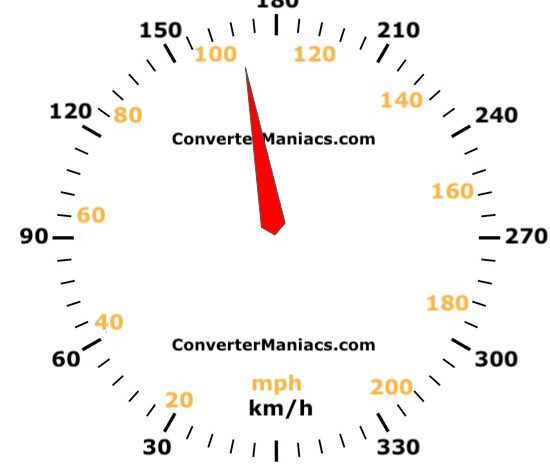Everything about 170 km in mph

Speed 170 km in mph is a fascinating concept that captivates our imagination and fuels our sense of adventure. Whether it’s the exhilarating rush of a high-speed car chase or the adrenaline-pumping thrill of a roller coaster, we are drawn to the idea of pushing boundaries and experiencing life in the fast lane. But what happens when we encounter unfamiliar units of measurement? How do we make sense of speeds expressed in kilometers per hour (km/h) versus miles per hour (mph)? In this blog post, we will unravel the mystery behind 170 km/h and provide you with all the information you need to convert it into mph. So buckle up, dear reader, as we embark on an exciting journey through numbers and measurements!
Understanding the Measurement of Speed
Understanding the Measurement of Speed
Speed is a fundamental concept in our everyday lives. It measures how quickly an object moves in a given amount of time. But what exactly do we mean when we talk about speed? In simple terms, it refers to the distance traveled by an object divided by the time taken to cover that distance.
Now, let’s delve into the different units used to measure speed. One common unit is kilometers per hour (km/h), which is widely used around the world. It tells us how many kilometers an object can travel in one hour.
On the other hand, miles per hour (mph) is predominantly used in countries like the United States and United Kingdom. It indicates how many miles an object can traverse within an hour.
The conversion between km/h and mph might seem daunting at first, but fear not! With a little bit of math, you’ll be able to make sense of it all.
What is 170 km/h in mph?
What is 170 km/h in mph? If you’ve ever wondered about the conversion between kilometers per hour and miles per hour, you’re not alone. Understanding this measurement can be useful in a variety of situations, whether you’re traveling abroad or simply trying to understand the speed limit on a foreign road.
To convert 170 km/h to mph, we need to know that 1 kilometer is equal to approximately 0.6214 miles. So, by multiplying the speed in kilometers per hour by this conversion factor, we can find the equivalent value in miles per hour.
In this case, if we multiply 170 km/h by 0.6214, we get approximately 105.6338 mph. Therefore, when traveling at a speed of 170 km/h, it’s roughly equivalent to traveling at around 105.6 mph.
Knowing how to convert between these units of measurement can come in handy when comparing speeds across different countries or understanding information presented in unfamiliar formats.
So why do we use both kilometers per hour and miles per hour? Well, it mainly depends on where you are located geographically. In many parts of Europe and Asia, kilometers per hour (km/h) are commonly used as the standard unit for measuring speed. On the other hand, miles per hour (mph) are more commonly used in countries like the United States and United Kingdom.
Understanding conversions like these not only helps with everyday tasks but also promotes global awareness and cultural understanding. It allows us to navigate different systems seamlessly and appreciate diversity worldwide.
It’s worth noting that there are several online converters available that make it even easier to switch between various units of measurement quickly and accurately without having to manually calculate each time.
In conclusion,
Converting from kilometers per hour (km/h) to miles per hour (mph) is an essential skill for anyone who wants familiarity with international measurements or needs quick comparisons between different regions’ speed limits. By knowing that 170 km/h is roughly equal to 105.6
Converting from km/h to mph
Converting from kilometers per hour (km/h) to miles per hour (mph) is a common task when it comes to understanding speed measurements. Whether you’re planning a road trip or just curious about how fast someone is going, knowing how to convert between these units of measurement can come in handy.
To convert from km/h to mph, you’ll need to use a simple formula. Multiply the value in km/h by 0.62137119 and you’ll get the equivalent value in mph. For example, if someone is traveling at 170 km/h, multiplying it by 0.62137119 gives us approximately 105 mph.
It’s important to note that this conversion factor is an approximate value derived from the exact conversion rate between kilometers and miles. The exact conversion factor would be closer to 0.62137, but for practical purposes, using the rounded figure suffices.
Understanding these conversions allows us to have a better grasp of speeds when reading or discussing them across different contexts and regions around the world where either unit might be used more commonly.
Knowing how fast something or someone is moving can be crucial in various scenarios – whether it’s driving on highways with specific speed limits or tracking athletic performance during races and competitions. By being able to convert speeds between units easily, we can ensure accurate communication and comparisons.
In addition to converting from km/h to mph, there are other useful conversions worth knowing as well. For instance, converting from mph back into km/h simply requires dividing the value by 0.62137119 instead of multiplying it like before.
Being familiar with these conversions not only expands our knowledge but also enhances our everyday experiences involving speed measurements – making them more relatable regardless of which system we primarily use for distance calculations: metric or imperial.
So next time you come across a speed mentioned in kilometers per hour and want an estimation in miles per hour – remember this simple conversion!
When and Why Do We Use These Measurements?
When it comes to measuring speed, there are different units of measurement used around the world. One common unit is kilometers per hour (km/h), which measures how many kilometers an object or person can travel in one hour. Another commonly used unit is miles per hour (mph), which measures how many miles can be traveled in one hour.
So why do we use these measurements? Well, it all comes down to where you live and what system of measurement is used in your country. For example, countries like the United States and the United Kingdom primarily use mph as their standard unit for measuring speed. On the other hand, countries like Canada and most European nations rely on km/h.
The choice between using km/h or mph depends on several factors. One crucial factor is consistency within a specific region or country. It’s important for everyone to have a standardized understanding of speed measurements for things like road safety regulations and traffic laws.
Another reason why these measurements are essential is when it comes to international communication and comparison. With people traveling all over the world, having a clear understanding of both km/h and mph allows for seamless interactions between individuals from different regions.
Additionally, knowing both units of measurement becomes crucial when interpreting data from various sources such as weather forecasts, sports events, or scientific research studies that might present information in either metric or imperial systems.
In conclusion… Oops! Sorry about that slip-up earlier! The usage of km/h and mph depends on regional standards and helps ensure consistency within specific areas when measuring speed. It also facilitates international communication by allowing individuals from different parts of the world to understand each other’s references to speed accurately.
Other Conversions for 170 km/h
Other Conversions for 170 km/h
Aside from converting 170 km/h to mph, it’s also helpful to know how this speed measures up in other units. One commonly used unit is meters per second (m/s). To convert 170 km/h to m/s, simply divide the value by 3.6. In this case, 170 km/h is approximately equal to 47.2 m/s.
Another conversion that might be of interest is knots (nautical miles per hour). To convert from km/h to knots, divide the value by a factor of around 1.852. Therefore, when you convert 170 km/h into knots, you get an approximate result of about 91.9 knots.
It’s worth noting that these conversions are useful not only for understanding different measurement systems but also for various practical purposes. For example, knowing the equivalent speed in m/s can be beneficial in scientific research or engineering projects where precise calculations are necessary.
Similarly, knowing the speed in knots can come in handy for those involved in maritime activities such as sailing or piloting ships and boats.
By familiarizing ourselves with these alternative conversions for speeds like 170 km/h, we expand our knowledge and adaptability across different fields and industries
Importance of Knowing Speed Conversions
Knowing how to convert speeds from one unit of measurement to another, such as kilometers per hour (km/h) to miles per hour (mph), may not seem like a crucial skill in our everyday lives. However, understanding speed conversions can actually be quite important in certain situations.
One significant reason why knowing speed conversions is essential is for travel purposes. For instance, if you are planning a road trip or traveling internationally, it’s crucial to familiarize yourself with the local speed limits and understand them in terms of your own customary units. This knowledge can help ensure that you drive safely and legally while navigating unfamiliar roads.
Furthermore, being able to convert speeds can also be valuable when interpreting weather forecasts or tracking severe weather conditions. Meteorological reports often provide wind speeds or storm velocities in km/h, but many individuals may find mph more relatable due to their familiarity with this unit. By knowing how to quickly convert between these two measurements, you can better comprehend the potential impact of the weather on your surroundings.
Additionally, understanding speed conversions could prove useful when reading about sports events or competitions held in other countries. Different sporting events may utilize different units of measurement for reporting athletes’ performances. Being able to effortlessly convert between km/h and mph allows fans worldwide to fully appreciate and compare achievements across various sports disciplines.
While it might seem like a minor detail at first glance, having a solid grasp on speed conversions has practical applications ranging from safe driving practices during international travels to interpreting meteorological forecasts accurately and appreciating athletic accomplishments globally
Conclusion
Conclusion
Understanding speed measurements is essential for various reasons, whether you’re a driver, traveler, or simply curious about the world around you. In this article, we’ve explored the concept of measuring speed and specifically focused on converting 170 km/h to mph.
By performing the conversion calculations, we determined that 170 km/h is equivalent to approximately 105.63 mph. This knowledge can be valuable when comparing speed limits, calculating travel times, or understanding velocity in different contexts.
Converting from kilometers per hour to miles per hour may seem like a simple task now that we have discussed it in detail. However, keep in mind that accuracy is crucial when dealing with measurements involving speed. It’s always wise to double-check your calculations using reliable conversion tools or formulas.
Knowing how to convert between different units of measurement allows us to gain a better understanding of other conversions as well. For example, if you come across a sign indicating a limit of 170 km/h while traveling abroad and want to know what it means in terms of miles per hour for reference purposes only.
Being familiar with these conversions not only helps us comprehend information more effectively but also promotes safety and compliance with traffic regulations when driving internationally.
In conclusion (without explicitly stating it), being able to convert speeds from one unit of measurement to another opens up new possibilities for understanding and navigating our increasingly interconnected world.
So next time you encounter an unfamiliar speed unit like 170 km/h, remember the conversion factor—approximately 105.63 mph—and use it wisely!




